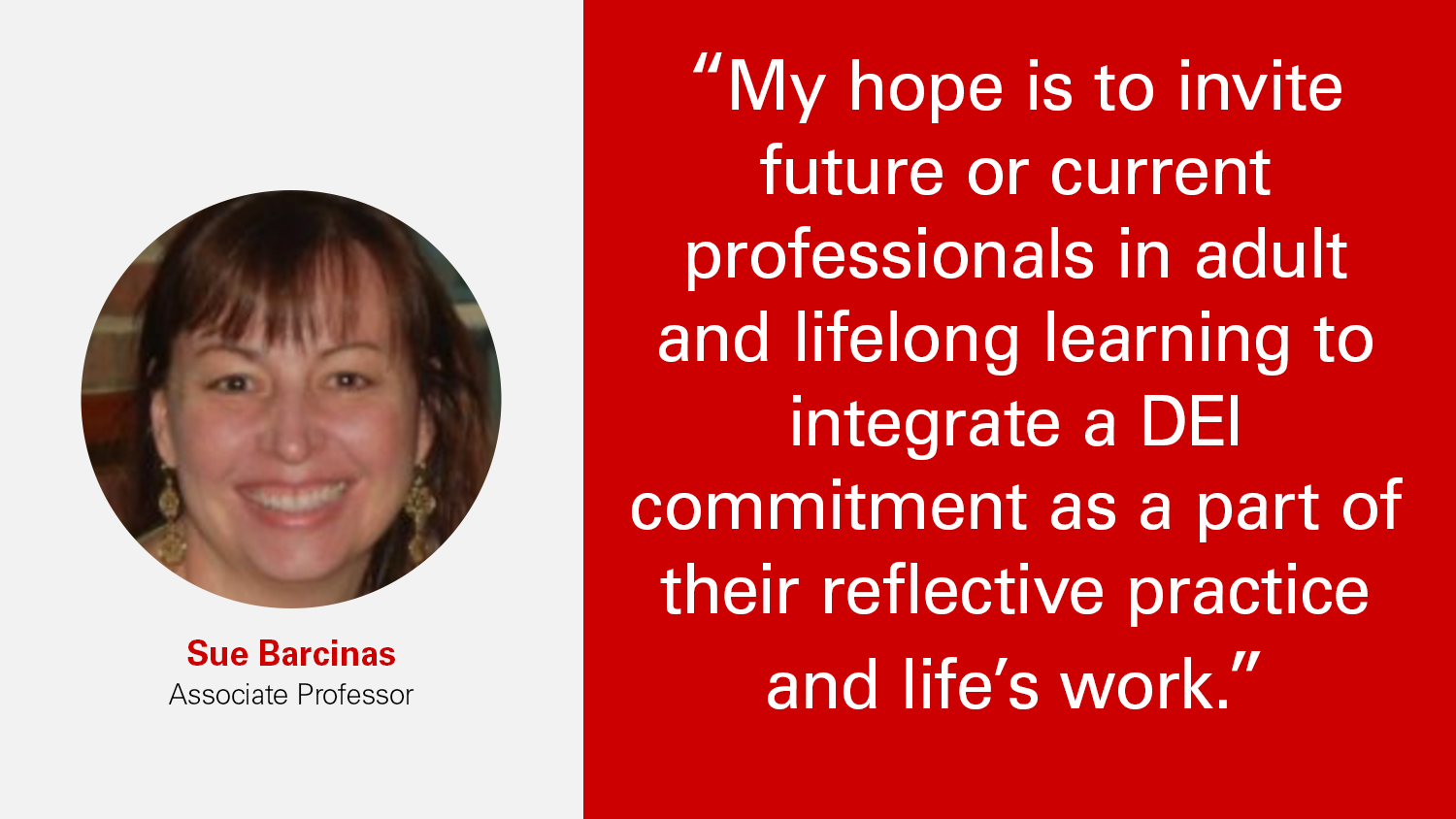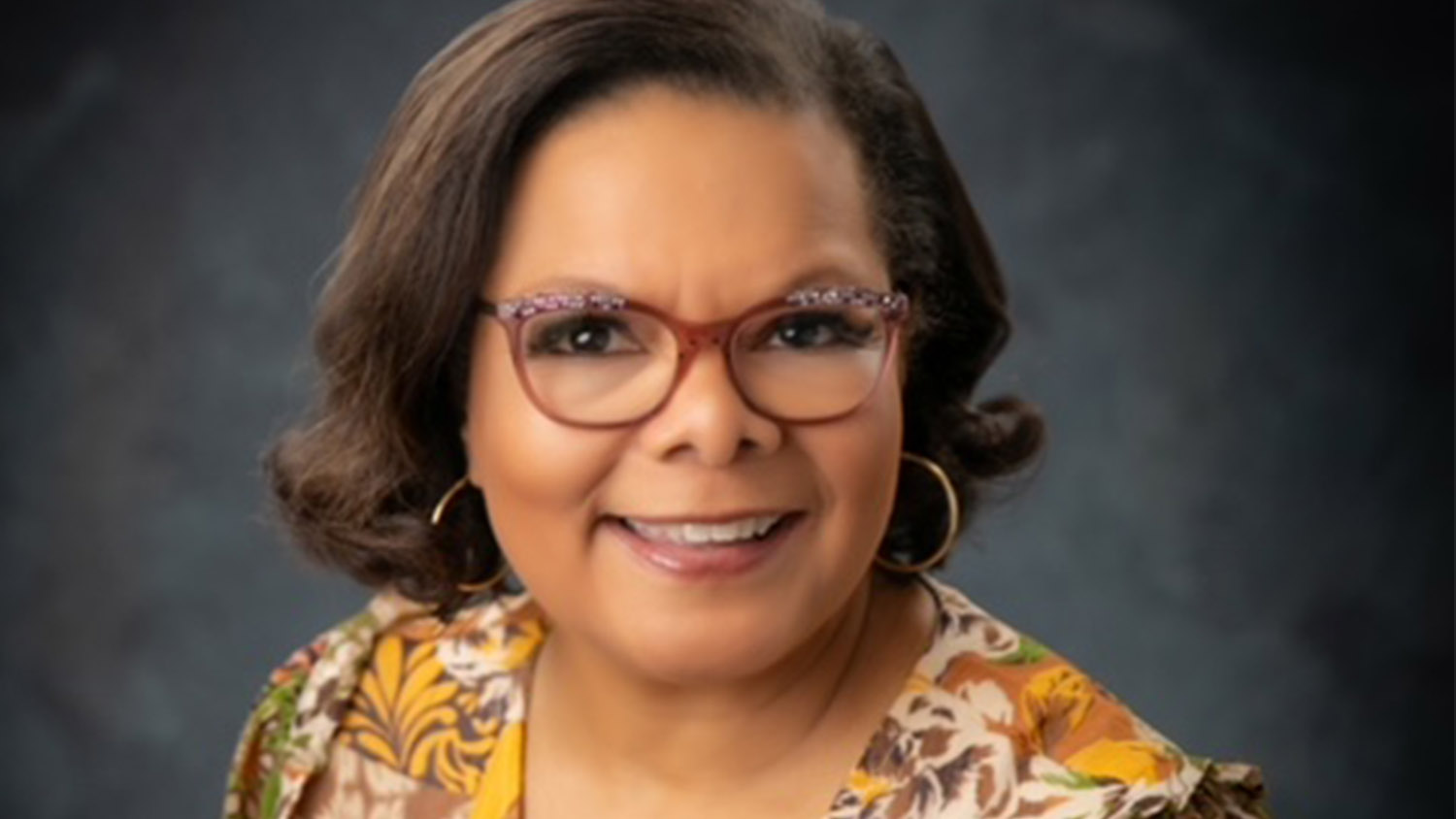Associate Professor and Program Coordinator Sue Barcinas is Working to Advance Diversity, Equity and Inclusion in All Lifelong Learning Experiences

Sue Barcinas wants to help create environments for all learners to thrive, regardless of age, and she cannot imagine doing this without diversity, equity and inclusion.
Barcinas grew up living in different countries as a military daughter. She witnessed her mother study for her United States citizenship test, navigate starting a mid-life career and regain education credentials for their new home.
Barcinas is currently an associate professor of adult and lifelong education and the program coordinator of the Adult, Workforce, and Continuing Professional Education graduate program in the NC State College of Education. She has always had the desire to work in a helping profession.
“I’ve always been interested in understanding how many ways adults can learn and grow over their lifetimes and how diversity is a crucial part of our professional and personal lives,” Barcinas said.
Barcinas has been working at NC State since 2004, and her work and research have since evolved to include her many passions. Her topics of interest include women’s health and well-being, international issues and adult education.
Currently, she is working on a research project that takes a closer look at how race and gender dynamics influence paramedic and EMS professional field experience.
“This profession touches every community in our country through the provision of emergency medical, pre-hospital care,” Barcinas said.
In another collaborative project, Barcinas is studying how Asian American Pacific Islander (AAPI) adults navigate their professional and personal lives, with an emphasis on how they understand and respond to race and gender dynamics.
Barcinas is also teaching two new courses this year. One course focuses on Diversity in Health Professions Education, and the other on Diversity, Mobility, and Pluralistic Society.
She frames her courses using reflective practices.
“My hope is to invite future or current professionals in adult and lifelong learning to integrate a DEI commitment as a part of their reflective practice and life’s work,” Barcinas said.
Barcinas believes that it is important for the adult and lifelong education field to connect theory to improved professional practice.
“I plan to continue to contribute applied research in health professions education and in the study of adult and lifelong learners, especially adults who are trying to improve their lives through education,” she said.
She has previously written and edited books that focus on a women’s health and epidemiology longitudinal study, and on women college students and their experiences, especially adult learners.
For learning more about social justice and anti-racist education, Barcinas recommends Stephen Brookfield and Mary Hess’s book Becoming a White Antiracist, which is a how-to book specifically for faculty or instructors/facilitators in adult and postsecondary settings.
She also recommends a two-volume academic series from her field, “I am What I Become” — the volumes are Identity and LifeLong Learning in Higher Education and Identity and Lifelong Learning: Becoming Through Lived Experience, edited by Gammel, Motulsky & Rutstein-Riley.
This story was written by doctoral student Jayla Moody.
- Categories:


